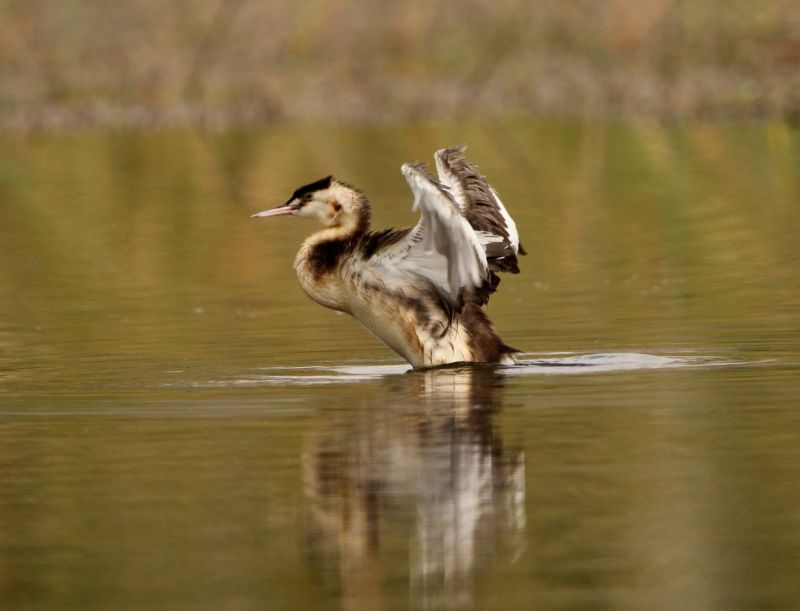
A great crested grebe in Ammiq on Oct 22, 2022. A migratory bird, that, in 2019, was recorded breeding in Lebanon for the first time. (Credit: Richard Salame/L'Orient Today)
AMMIQ, Lebanon — Early on a gray, overcast Saturday morning, dozens of people gathered at the Ammiq wetland in the Bekaa Valley, one of Lebanon’s richest natural ecosystems. They had come to catch a glimpse of the birds living there or passing through on their annual migration south.
The crowd, which included veteran birdwatchers and first-timers, along with representatives from wildlife NGOs, the United Nations, and two European embassies, were treated to sights of ibises, herons, egrets, coots, and two shy but dazzling blue kingfishers.
Each fall and spring more than two billion migratory birds fly over Lebanon, one of the world’s most important migration corridors, on their annual passage from Europe to Africa. They include all sorts of raptors, pelicans, storks and many other species.
Spring — when they head back north — and fall are also peak seasons for poachers to illegally kill the birds, many of which are endangered and protected species.
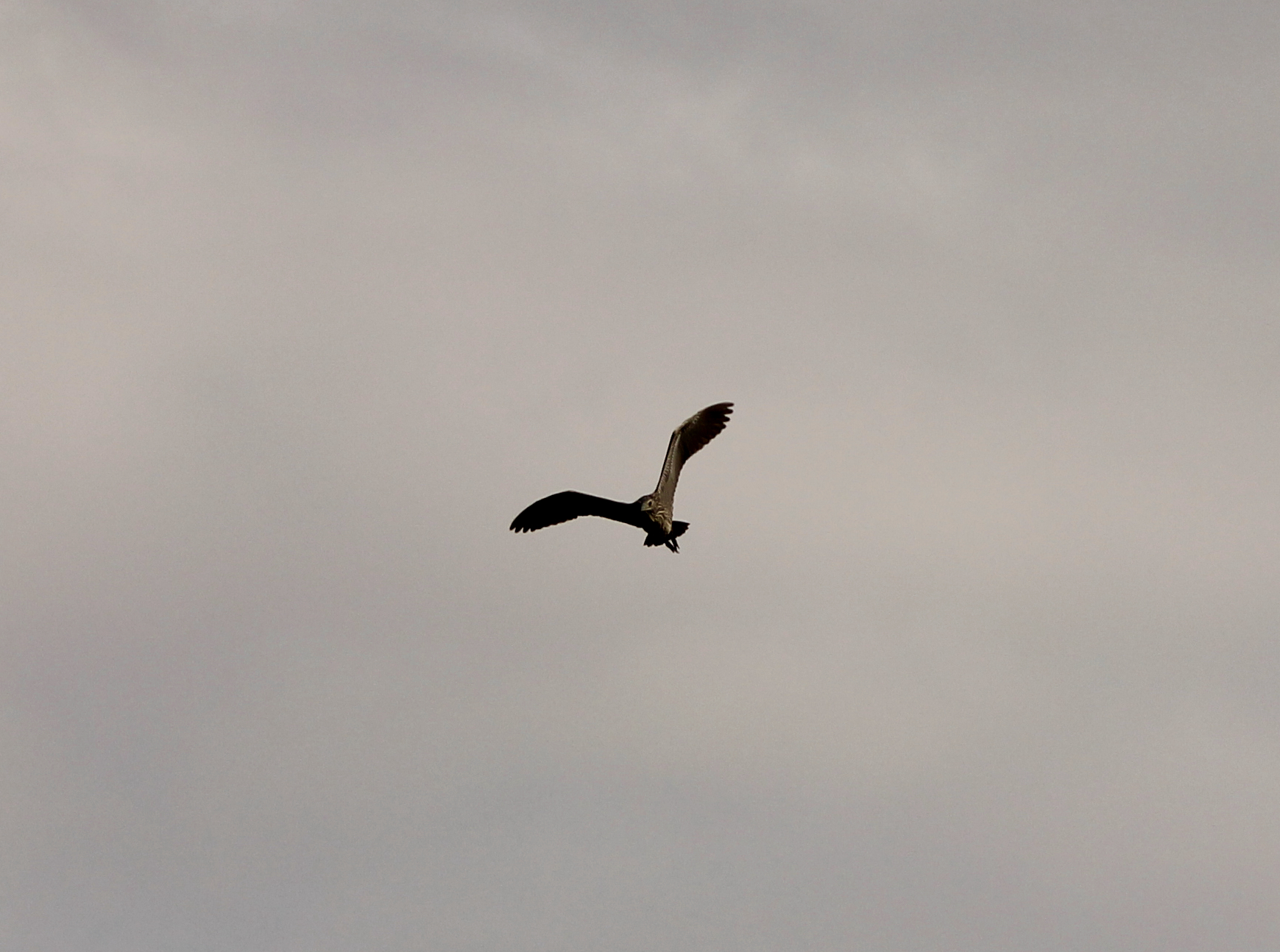 A juvenile night heron soars over the Bekaa Valley on Oct 22, 2022. A common breeding species during summer, this one is likely migrating. (Credit: Richard Salame/L'Orient Today)
A juvenile night heron soars over the Bekaa Valley on Oct 22, 2022. A common breeding species during summer, this one is likely migrating. (Credit: Richard Salame/L'Orient Today)
Lebanon hasn’t been a welcoming host to the migrating birds that visit each year, drawing complaints from foreign governments who fault the state for failing to protect endangered species during their transit overhead, depleting their own populations of protected migratory birds. In 2018, 58 conservation organizations in 30 countries sent President Michel Aoun an open letter calling on him to enforce laws for the protection of migratory birds.
Some 2.6 million birds are illegally killed in Lebanon by poachers in a typical year, according to BirdLife International, a partnership of international bird conservation NGOs.
But Lebanon’s three-year economic crisis, which has seen the national currency plummet and millions of people lose their savings to local banks, appears to have decreased hunting somewhat, according to bird conservationists.
On the one hand, law enforcement efforts to keep illegal hunting at bay have dramatically fallen off, although they were never sufficient to the scale of the problem, even at the best of times. On the other hand, shotgun cartridges — which often litter the ground in rural areas — have become prohibitively expensive for many would-be hunters, decreasing the number of bullets filling the sky.
“This year, and the last year as well, compared to other years, we didn’t encounter a lot of poaching or hunting,” Fouad Itani, president of the Association for Bird Conservation in Lebanon, said at the Saturday event in Ammiq, where the association and the United Nations Development Program unveiled a new bird hide, a type of birdwatching shelter.
Caretaker Environment Minister Nasser Yassin, also present, echoed the same sentiment, adding, “We’ve been seeing some of the species, some of the birds that we haven’t seen for years.”
He pointed not only to the price of cartridges but also past COVID-19 lockdowns and a growing awareness among Lebanese people of local eco-tourism opportunities to enjoy instead of hunting.
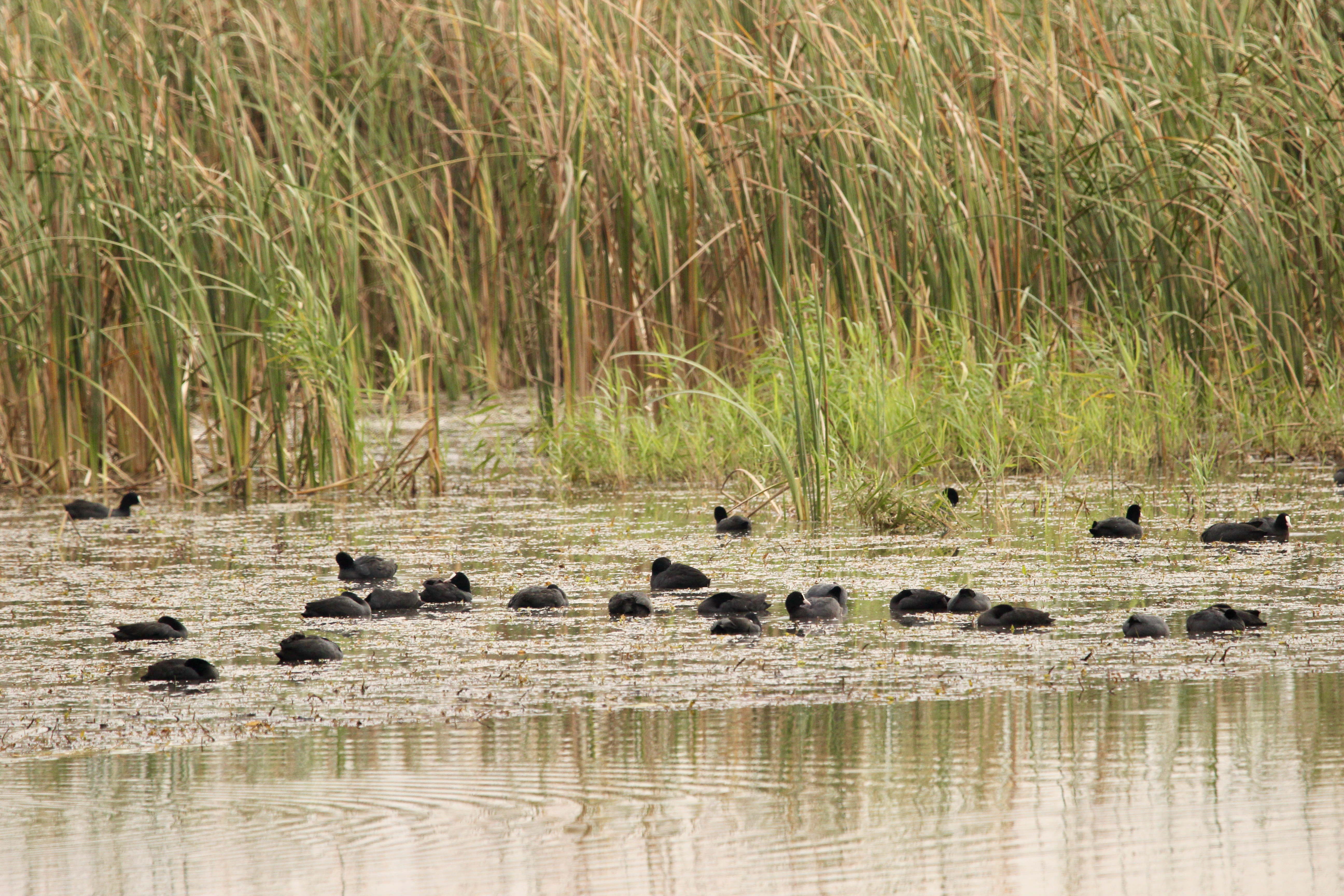 A group of Eurasian Coots in Ammiq on Oct 22, 2022. The species can be found in Lebanon year round. (Credit: Richard Salame/L'Orient Today)
A group of Eurasian Coots in Ammiq on Oct 22, 2022. The species can be found in Lebanon year round. (Credit: Richard Salame/L'Orient Today)
Saturday’s event aimed to raise public awareness of Lebanon’s irreplaceable wetlands and the wetland birds that live or visit them. Hence the dozens of visitors, many of whom had never before tried birdwatching.
The organizations built the new bird hide in Lebanon’s largest freshwater wetland, Ammiq, to replace one that had fallen into disrepair, and published a new book on the country’s wetland birds.
“We have a very, very good hunting law. However, we lack the proper implementation,” Itani said.
Lebanon’s hunting law allows the Environment Ministry to set a legal season for wildlife hunting and to issue permits. It also sets a maximum limit for the number of birds that can be killed per day per hunter and bans the hunting of some species. It prohibits the use of certain devices, like electronic bird callers and nets.
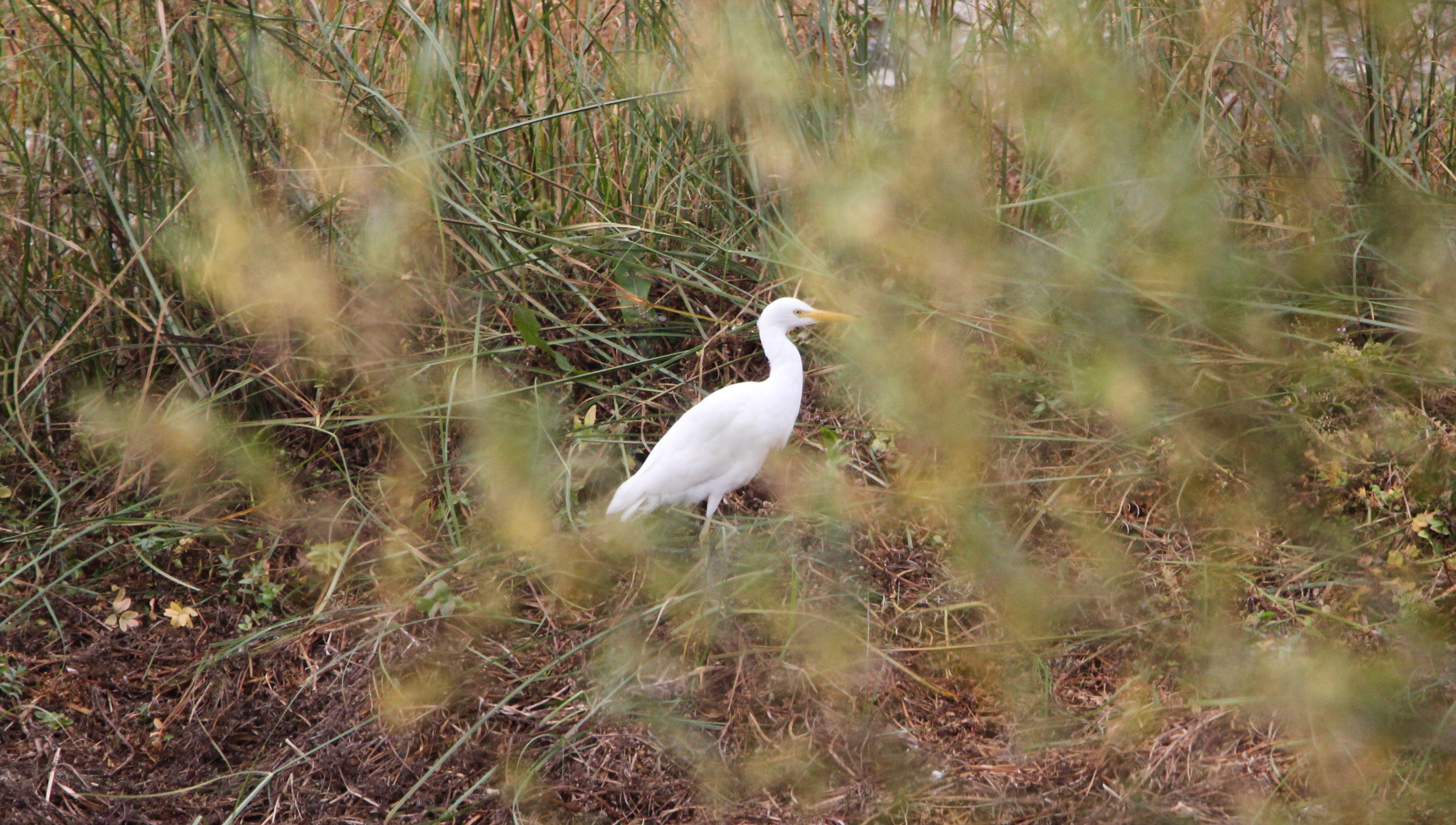 A Western Cattle Egret, the species is known locally as Abou Qirdan, in Ammiq on Oct 22, 2022. (Credit: Richard Salame/L'Orient Today)
A Western Cattle Egret, the species is known locally as Abou Qirdan, in Ammiq on Oct 22, 2022. (Credit: Richard Salame/L'Orient Today)
But the law lacks some teeth, possibly owing to the fact that some of the country’s illegal hunters are reportedly connected to the security forces that are designated to enforce the law.
In 2018 and 2019, law enforcement presence and activity was improving, Itani said, but that has fallen off due to the economic crisis and the threadbare budgets of government institutions like the Internal Security Forces.
“So, unfortunately, they depend on NGOs to do the job,” he added. “But we see it in a different way, we see it as the job of every law-abiding citizen in Lebanon to just call 112 [the police hotline], or try to explain to their family member, to their children, that this is wrong. Hunting outside of the season is wrong. Hunting in big numbers is wrong.”
“As an NGO, we’re not against hunting. We’re with ethical hunting and sustainable hunting as long as the hunter is responsible and is following the law,” Itani added.
Yassin agreed that law enforcement “hasn’t been as it should be.”
His ministry has focused its efforts on raising awareness about protecting birds, on expanding the number of protected nature reserves, and working with local authorities who might be able to police their own villages, he said.
“We need to decentralize environmental protection and environmental action,” he added.
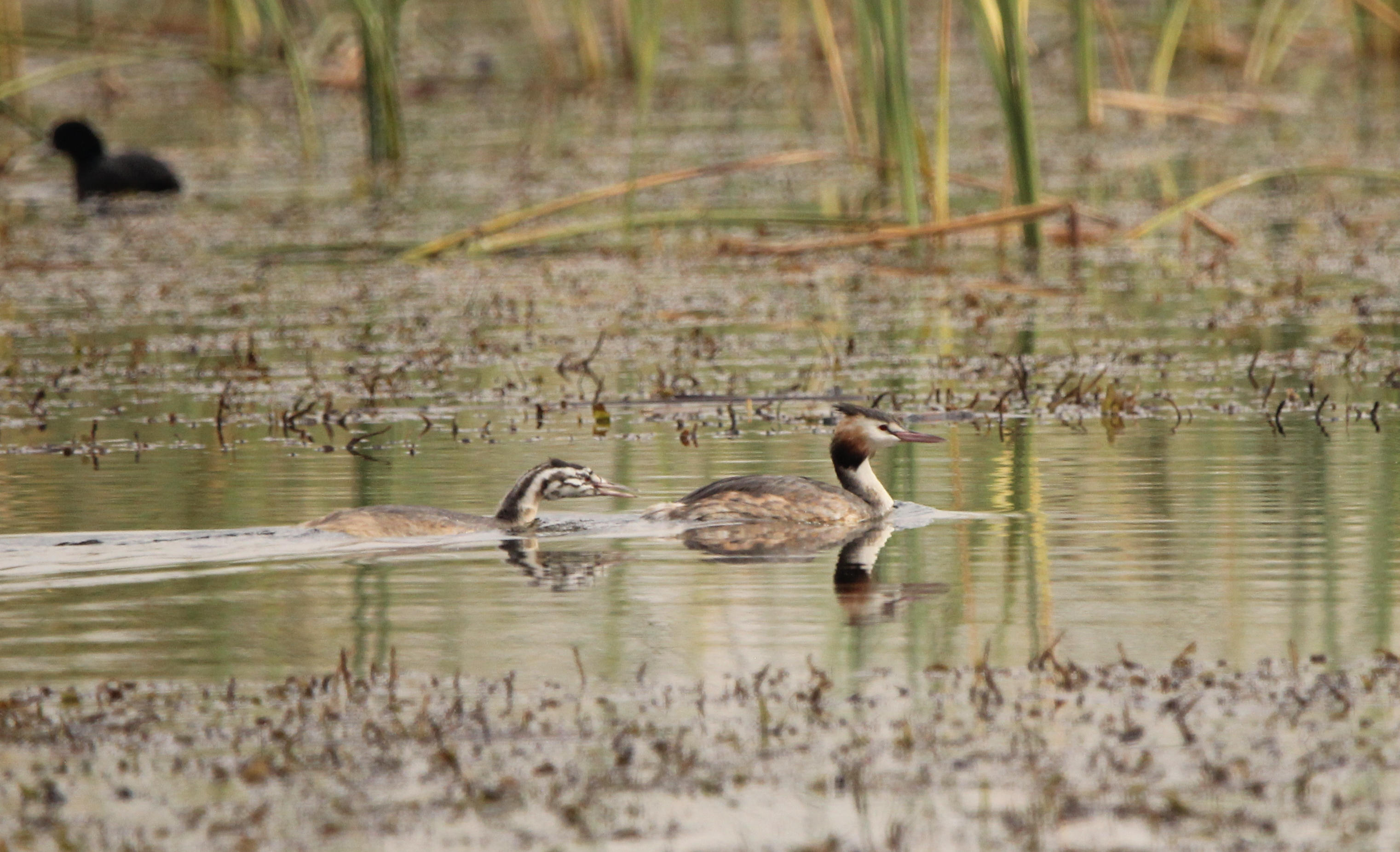 A pair of great crested grebes in Ammiq on Oct 22, 2022. A migratory species, in 2019 it was recorded breeding in Lebanon for the first time. (Credit: Richard Salame/L'Orient Today)
A pair of great crested grebes in Ammiq on Oct 22, 2022. A migratory species, in 2019 it was recorded breeding in Lebanon for the first time. (Credit: Richard Salame/L'Orient Today)
